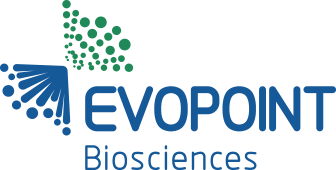
On August 13th 2025, Suzhou, China, Evopoint Biosciences, a platform-based innovative pharmaceutical company dedicated to addressing major unmet clinical needs worldwide through a disease-oriented, innovation-driven approach, announced today the completion of the first patient dosing of t XNW27011 in a Phase III clinical trial for the treatment of patients with locally advanced, unresectable, or metastatic HER2-negative gastric or gastroesophageal junction adenocarcinoma who have received at least two prior lines of systemic therapy.
XNW27011 is an investigational next-generation antibody-drug conjugate (ADC) targeting CLDN18.2, independently developed by Evopoint and classified as a Category 1 therapeutic biological product in China. The product has achieved significant milestones in clinical development and demonstrated strong global competitiveness: In December 2022, XNW27011 received Investigational New Drug (IND) approval from the U.S. Food and Drug Administration (FDA) followed by the IND approval from China’s National Medical Products Administration (NMPA) in April 2023, achieving an efficient dual filing in both countries; it was subsequently granted for Fast Track Designation (FTD) by the FDA in June 2024, and was included in the Breakthrough Therapy Designation (BTD) list by the NMPA’s Center for Drug Evaluation (CDE) in May 2025.
Businesswise, Evopoint has licensed the rights for global development and commercialization, excluding mainland China, Hong Kong, Macau, and Taiwan, to Astellas Pharma Inc. (Tokyo Stock Exchange: 4503). Under the license agreement, Evopoint is eligible to receive upfront and milestone payments totaling up to USD 1.54 billion, and royalties on net sales following the product’s launch in overseas markets.
Gastric cancer remains to be a major challenge in oncology due to its persistently high incidence and mortality worldwide. According to WHO data, approximately 968,000 new cases and 660,000 deaths were reported in 2022 globally. In China, the numbers for new cases and death of gastric cancer were reported as 358,000 and 260,000 respectively in 2022 by China’s National Cancer Center. Current first- and second-line regimens for gastric cancer typically combine the HER2-targeted agent trastuzumab with chemotherapy. However, in patients with advanced disease having mid/low or negative HER2 expression, the pronounced heterogeneity of gastric cancer and its complex tumor immune microenvironment often limit the efficacy of chemotherapy, resulting in minimal survival benefit and poor tolerability. Novel therapeutic targets, agents, and treatment strategies are urgently needed to improve clinical outcomes for this patient population.
In the Phase I/II clinical study, XNW27011 demonstrated promising efficacy in the target population, which is significantly superior to that of the currently recommended regiments, suggesting considerable potential for clinical benefit.
Relevant study results are planned to be presented at upcoming academic conferences or published in peer-reviewed journals.
About CLDN18.2
In normal tissues, CLDN18.2 expression is highly restricted, being confined to the differentiated epithelial cells of the gastric mucosa and virtually absent elsewhere. During malignant transformation, CLDN18.2 in cancer cells is exposed due to the disruption of tight junctions. Meanwhile ClDN18.2 is aberrantly overexpressed in gastric cancer cells. The epitode exposure and overexpression of CLDN18.2 make it a highly specific therapeutic target in gastric cancer. The ADC binds to CLDN18.2-expressing tumor cells via its antibody moiety, undergoes internalization, is cleaved in lysosomes, and releases a cytotoxic payload to efficiently kill the tumor cells. This approach combines the target specificity of antibody-based therapies with the potent cytotoxicity of conventional chemotherapeutics. In advanced gastric adenocarcinoma, CLDN18.2 is frequently overexpressed, indicating that patients with this biomarker profile may benefit from such targeted therapy.
Forward-Looking Statements
This press release contains certain forward-looking statements based on the company’s current expectations and beliefs. Actual results may differ materially from those expressed or implied due to a variety of risks and uncertainties.





